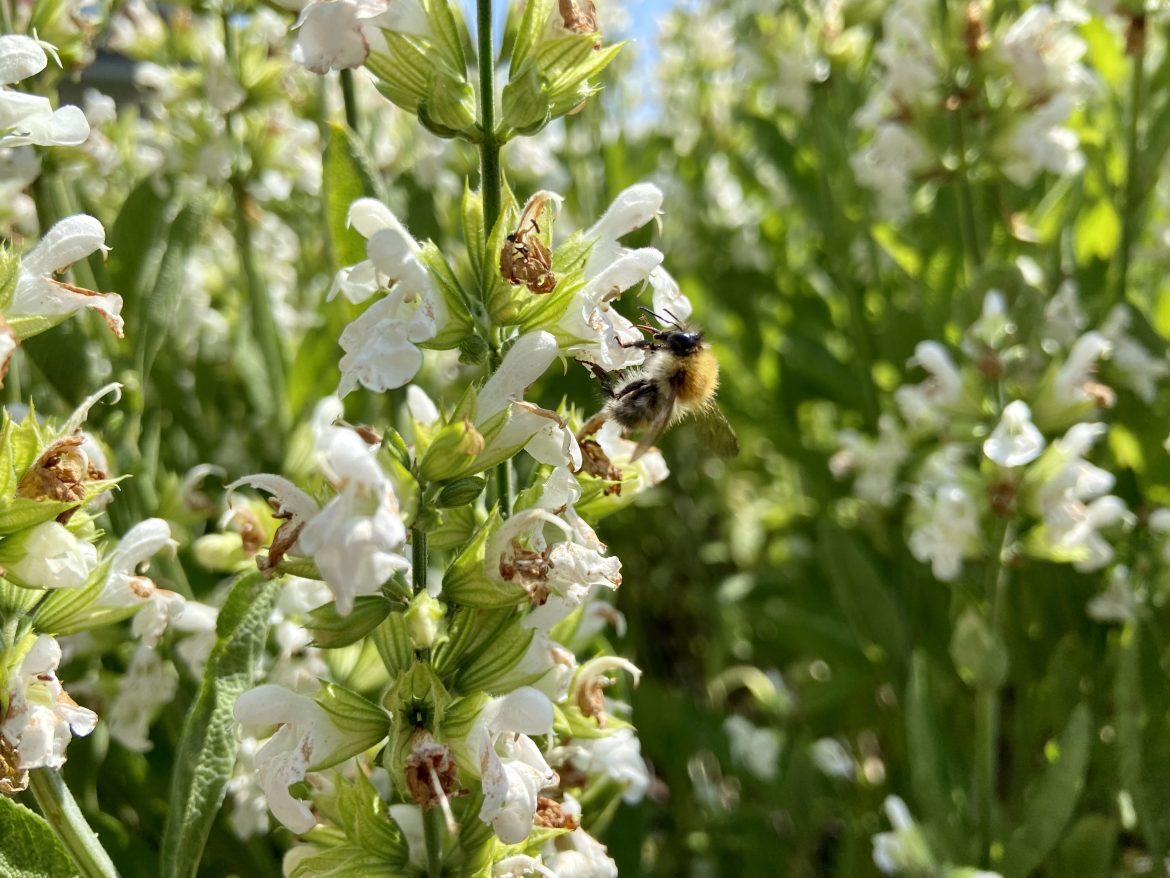The growing concern over the declining bee population has had significant impacts on ecosystems and food production. As primary pollinators, bees play a crucial role in maintaining biodiversity and ensuring the productivity of crops. It is imperative to recognise the significance of planting pollinating plants in gardens across the UK, as this creates a flourishing habitat for bees. Over the past few years, we have actively taken steps to maximise the number of pollinating plants in our garden. Our aim has been to provide an abundance of nectar and pollen sources, starting early in the season, to support their survival and make a positive impact on the environment. As a result, our garden has transformed into a thriving sanctuary, attracting bees of all shapes and sizes.
When selecting plants, it is essential to consider those that offer a diverse range of nectar and pollen throughout the year. Native wildflowers like foxgloves, borage, lavender and poppies are excellent choices as they have evolved alongside native bee species. We’ve also planted many flowering herbs like chives, sage and rosemary that bees love, and borage is another favourite.
Bee-friendly gardens are visually appealing, with vibrant colours and delightful scents of pollinating plants transforming outdoor spaces into stunning oases. They attract not only bees but also other beneficial insects like butterflies.
To maximise the positive impact of our gardens on bees, it is essential to also adopt sustainable gardening practices. Minimise or eliminate the use of pesticides, as they can be harmful to bees and other beneficial insects. Opt for organic pest control methods and natural alternatives. Additionally, providing water sources like birdbaths or shallow dishes with rocks will help quench the thirst of bees during hot and dry periods.
